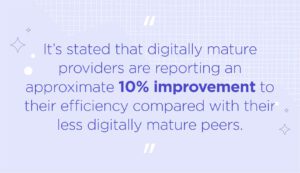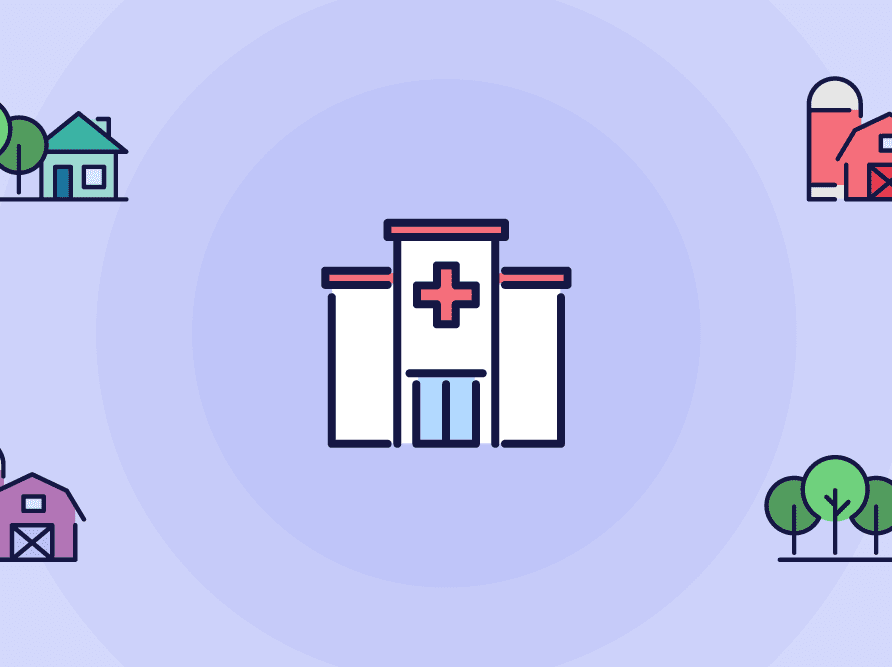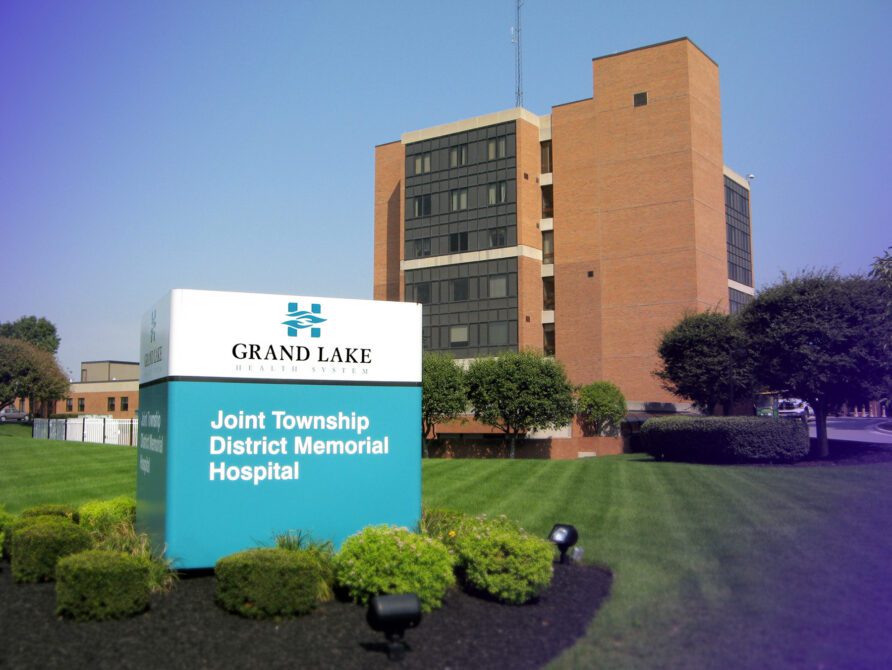Article
Downtime: What does it cost the NHS?
The cost of NHS IT downtime is significant. Doctors and nurses rely on having access to systems and information to do their jobs, and patients rely on having access to care.
In parallel, IT systems used across the NHS are not uniform and it is not uncommon for them to be only partially deployed, maintained or interfaced. This in turn may lead to trusts not always realising all the benefits that these systems could provide to facilitate their clinical workflows and may even introduce extra work or duplicate data entry.
What is key is the focus on technology already deployed, as well as new implementations and the prioritisation of the effective use and maintenance of NHS systems.
At Altera Digital Health, we have our sights set on working alongside our clients, helping them deliver the care their patients expect with clinical systems configured and optimised to augment local workflows. This does not stop at the delivery and deployment of the software but rather extends to the maintenance of the software, hardware and the network. Without this holistic management, the likelihood of performance issues and system downtime increases significantly.
The financial costs of IT failure
The WannaCry ransomware attack of 2017 is estimated to have cost the NHS a total of £92M according to estimates from the Department of Health and Social Care. The cost is estimated to be approximately £19M in lost patient care output, and based on the findings, 1% of NHS services were disrupted over a one-week period, highlighted in the Department of Health and Social Care report, “Securing cyber resilience in health and care.”
 In addition to the lost services, it’s believed a further £500,000 was spent on dealing with the immediate effects of the IT failure. The biggest costs came in the June–July period immediately following WannaCry, which is estimated to have cost another £72M as the NHS worked to restore its services to full operation and to recover its data.
In addition to the lost services, it’s believed a further £500,000 was spent on dealing with the immediate effects of the IT failure. The biggest costs came in the June–July period immediately following WannaCry, which is estimated to have cost another £72M as the NHS worked to restore its services to full operation and to recover its data.
The WannaCry attack did not only affect the NHS but multiple organisations across the globe. The majority of the NHS trusts affected had Microsoft applications that were not up to date with cybersecurity patching, leaving them vulnerable to such attacks. Prioritisation of the ongoing maintenance of these systems has been highlighted as a key activity to mitigate cybersecurity vulnerabilities.
The immediate and longer-term effect on the affected trusts’ ability to deliver safe efficient patient care highlighted the paramount importance these systems have in running clinical services and the need for board-level oversight of cybersecurity to proactively defend against any future attacks.
Does cutting corners on IT mean cutting corners on patient care?
Across the NHS, multiple IT outages have contributed to an increase in delays to patient care and, consequently, exacerbated patient safety risks of delayed treatment. The National Crime Agency were made aware of a recent cyberattack that caused a major outage of NHS IT systems used to dispatch ambulances. This meant NHS staff were unable to access patient notes for three weeks. Having the right information available about a patient at the right time is crucial for care delivery. Similarly, NHS 111 reported services ran at reduced capacity after a cyberattack caused outages.
Downtime wears down doctors
 When technology fails, it can affect other areas of the hospital and create extra backlogs of work with cancelled operations and routine appointments and can have a significant impact to patient care. The effects can be felt across entire hospital networks as a knock-on effect from one failure. For example, when systems are disrupted, all clinicians experience extra stress because they are unable to access patient records and data, they become less efficient and this further compounds the potential for patient safety risks.
When technology fails, it can affect other areas of the hospital and create extra backlogs of work with cancelled operations and routine appointments and can have a significant impact to patient care. The effects can be felt across entire hospital networks as a knock-on effect from one failure. For example, when systems are disrupted, all clinicians experience extra stress because they are unable to access patient records and data, they become less efficient and this further compounds the potential for patient safety risks.
A publication from the General Medical Council, “Caring for doctors, caring for patients,” outlines how doctors rely heavily on IT for their daily tasks and states that there was “widespread frustration about inadequate IT systems that meant doctors could not provide the care needed because so much of their time was spent battling with technology.” They found that working in an efficient environment was conducive to being successful in their jobs.
A reliance on technology
During the pandemic, we saw NHS organisations accelerate their digital footprints at unprecedented speed, delivering tools to enable ongoing clinical care using virtual appointments and widening the range of care delivered at home facilitated by telemetry. The ongoing benefits of this approach are clear, but equally the desire to extend the scope of such services intensifies the need to prioritise IT system maintenance as many of these services cannot operate without the underpinning IT. Healthcare is no different from modern life, which will continue to evolve through innovation and technology, opening new possibilities for prevention, care and treatment.
Continued advances in virtual wards, the delivery of digital health services and the use of smartphone apps are all helping to widen patient choice. Improved access to digitised health and social care records is a critical route to improving efficiency and a key steppingstone to digital maturity.
In NHS England’s, “A Plan for Digital Health and Social Care,” it’s stated that digitally mature providers are reporting an approximate 10% improvement in their efficiency compared with their less digitally mature peers. This only highlights the need to invest even more in IT.
So, what does this mean and what can providers do to mitigate IT outages and ensure their IT systems run as they should with maximum efficiency?

Keep your hospital running with the right support
We know that NHS trusts across England are currently challenged to continue to roll out new functionality and capacity at the same time as optimising existing functionality and resourcing the ever-growing activity required to upgrade and maintain existing software, hardware and networks.
If digital resources were increased, it may help provide more coverage and close knowledge gaps that may exist with so many different IT systems to implement and maintain. In addition, system features could be better utilised, maximising functionality and also enabling internal teams to refocus their priorities.
Wrightington, Wigan and Leigh Teaching Hospitals NHS Foundation Trust has a long-standing relationship with Altera Digital Health that includes using Altera Technical Services. The Altera Technical Services team provides ongoing business-as-usual monitoring and enhanced system maintenance and support, enabling their own in-house team to concentrate on delivering new functionality. Martyn Smith, Associate Director of IM&T, explains the three critical challenges they were facing that led to this engagement:
1. Capacity
“First, we realised that our team was not big enough to guarantee that services would be available 24/7/365. We had lots of single points of failure, and it was never going to be economical to double and triple up, even if we could find the skilled people we needed.”
2. Skills and knowledge
“Second, expectations were being put on us to deliver more and more clinical functionality for our hospitals, and those expectations were getting close to outstripping our ability to deliver.”
3. Capability
“And third, we had been talking to the Altera team about some of the work that Sunrise™ customers had been doing in North America. We were keen to bring some of that to Wigan, but we just didn’t have the resources. So, we decided that we needed Altera to take on some of the load.”
As acknowledged in the Digital Health and Care Plan, “…the long-term sustainability of health and social care is dependent on having the right digital foundations in place.” It is therefore crucial that ongoing investments are made in people, systems and infrastructure so that NHS teams can continue delivering the best possible care to patients.
If you would like to learn more about how Altera Digital Health is supporting NHS trusts in efficiently resolving a wide range of issues that can arise as you implement and run Sunrise™ and other solutions, please contact infoUK@alterahealth.com.













